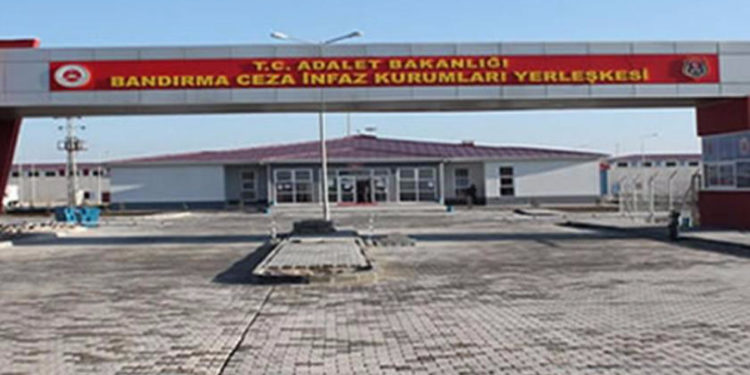CENTRAL NEWS
In many prisons, hospital referrals of hunger striker insurgents did not take place. One of these prisons is Bandırma No. 1 Type-T Prison.
Prisoners reported that they had not been taken to the hospital since May 26, when the strike ended.
Ömer Dorudemir (22), who was detained in this prison for 3 years and was on a hunger strike for 97 days, talked about the violation of rights in prison during his weekly telephone conversation with his family.
In 2014, Dorudemir had been the target of military bullets during an action by civilians to stop military operations in Lice when he was just under 18 years old.
Dorudemir was involved in a hunger strike, although he had been hit with a bullet in the spinal column. Dordemir said that their actions resulted in a victory, but they were not referred to the hospital after the termination of their actions.
Dorukdemir, a political prisoner, said he had friends who had been on the hunger strike for 140 days and that they have still not been treated, including the friends who had vomited blood.
Dorukdemir called for the lawyers and the relevant institutions to visit and act for the prisoners to be referred to the hospital as soon as possible and to implement the necessary treatments.
TREATMENT IN THE HOSPITAL BASEMENT
Menemen Type-T Prison has one of the most dishonorable approaches to the insurgents. It was disclosed that the prisoners who had been on hunger strikes had refused the intervention because they were going to be treated in the basement of Menemen State Hospital. His mother Songül Üste shared the practices that the prisoners were exposed to.
Mother Uste, said that her son, and 6 of his friends ended their actions on May 27, they were later taken to Menemen State Hospital. However, the prisoners were taken to the basement of the hospital and told that they were being treated here. The Mother added that they want to continue the treatment of prisoners in prison.




